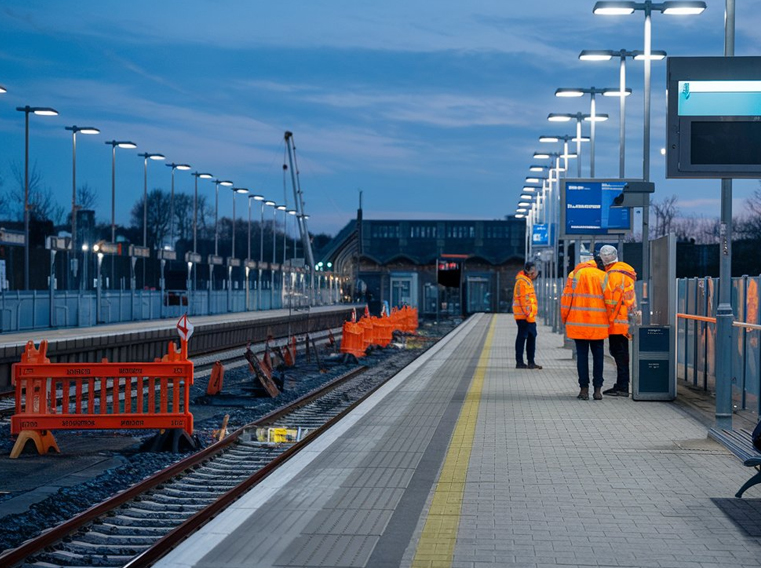Discover how community solidarity and public engagement unravel mysteries, strengthen emergency response, and foster a safer future. Join us in this collective journey!
Commuters face significant delays as engineering works have forced the cancellation of trains between London Paddington and Maidenhead. The Elizabeth Line, a crucial artery connecting the capital to its western suburbs, has been temporarily suspended along this stretch, causing widespread disruption to weekend travel plans. This unexpected closure highlights the ongoing challenges of maintaining London's expanding rail network, particularly the newly-opened Elizabeth Line, which has been operational for less than three years. Transport authorities are scrambling to provide alternative routes and bus replacement services to mitigate the impact on passengers.
Disruption Details and Alternative Travel Options

The Elizabeth Line, a vital transportation link connecting London's bustling centre to its western suburbs, has been temporarily suspended between Paddington and Maidenhead due to essential engineering works. This unexpected closure, affecting a 24-mile stretch of the line, has thrown weekend travel plans into disarray for thousands of commuters and visitors alike.
Transport for London (TfL) officials have cited urgent track maintenance as the primary reason for the disruption. While specific details of the engineering works remain undisclosed, sources suggest that the repairs are addressing wear and tear issues that have emerged since the Elizabeth Line's inauguration in May 2022.
To mitigate the impact on passengers, TfL has swiftly implemented a comprehensive replacement bus service. These buses will operate at increased frequencies, aiming to maintain connectivity along the affected route. However, travellers are advised to expect significantly longer journey times, with the bus replacement service estimated to add an additional 45-60 minutes to typical travel durations.
Key stations along the route, including Slough, Burnham, and Taplow, have deployed extra staff to assist passengers and provide real-time travel information. Digital displays and announcements at all affected stations are being regularly updated to keep travellers informed of the latest developments and alternative travel options.
Community Impact and Long-term Implications
The sudden closure of this crucial Elizabeth Line section highlights the delicate balance between maintaining London's expanding rail infrastructure and minimising disruption to daily life. For residents of towns like Maidenhead and Slough, the Elizabeth Line has become an integral part of their commute, dramatically reducing travel times to central London since its opening.
Local businesses, particularly those in the hospitality and retail sectors near affected stations, are bracing for a potential downturn in footfall. Weekend shoppers and tourists who typically use the Elizabeth Line to explore areas west of London may opt to postpone their trips, impacting the local economy.
This incident also raises questions about the long-term reliability of the Elizabeth Line. As a relatively new addition to London's transport network, such significant disruptions may erode public confidence in the service. Transport experts suggest that this could be a crucial moment for TfL to demonstrate its ability to manage and maintain the line effectively.
Moreover, the situation underscores the need for robust contingency planning in modern urban transport systems. As cities increasingly rely on high-capacity rail lines like the Elizabeth, the resilience of these networks becomes paramount. This weekend's disruption may prompt a review of maintenance schedules and emergency response protocols across London's entire rail network.
Navigating the Ripple Effects: A Wake-Up Call for Urban Transport
The sudden closure of the Elizabeth Line between Paddington and Maidenhead serves as a stark reminder of the fragility inherent in even the most modern transport systems. This disruption, while temporary, reverberates far beyond inconvenienced commuters, touching local economies and challenging public confidence in London's newest rail artery.
The incident presents a critical juncture for Transport for London. It's an opportunity to demonstrate resilience and adaptability in crisis management, potentially setting new benchmarks for urban transport networks worldwide. Conversely, mishandling this situation could erode trust in the Elizabeth Line's reliability, a concerning prospect for a service still in its infancy.
For affected communities, this disruption might catalyse a re-evaluation of their dependence on a single transport link. Could this spark innovation in local transport solutions or prompt a push for more diverse connectivity options?
As London grapples with this challenge, other global cities would do well to take note. The complexity of modern urban rail systems demands not just cutting-edge technology, but also robust contingency planning and agile response mechanisms.
As we watch this situation unfold, it's worth considering: How can cities better balance the need for efficient, high-capacity transport with the inevitability of maintenance and unforeseen disruptions? The answer may well shape the future of urban mobility.